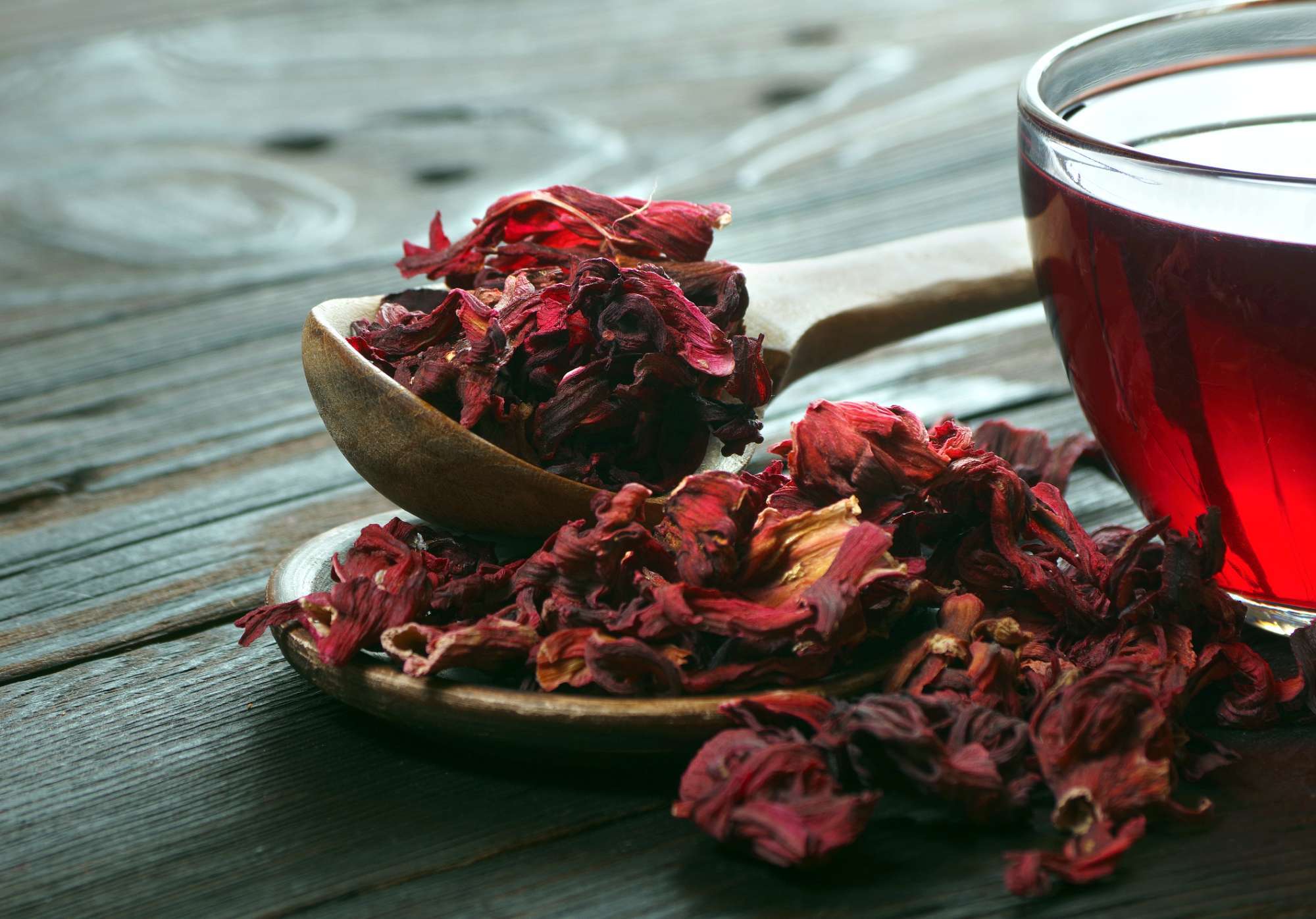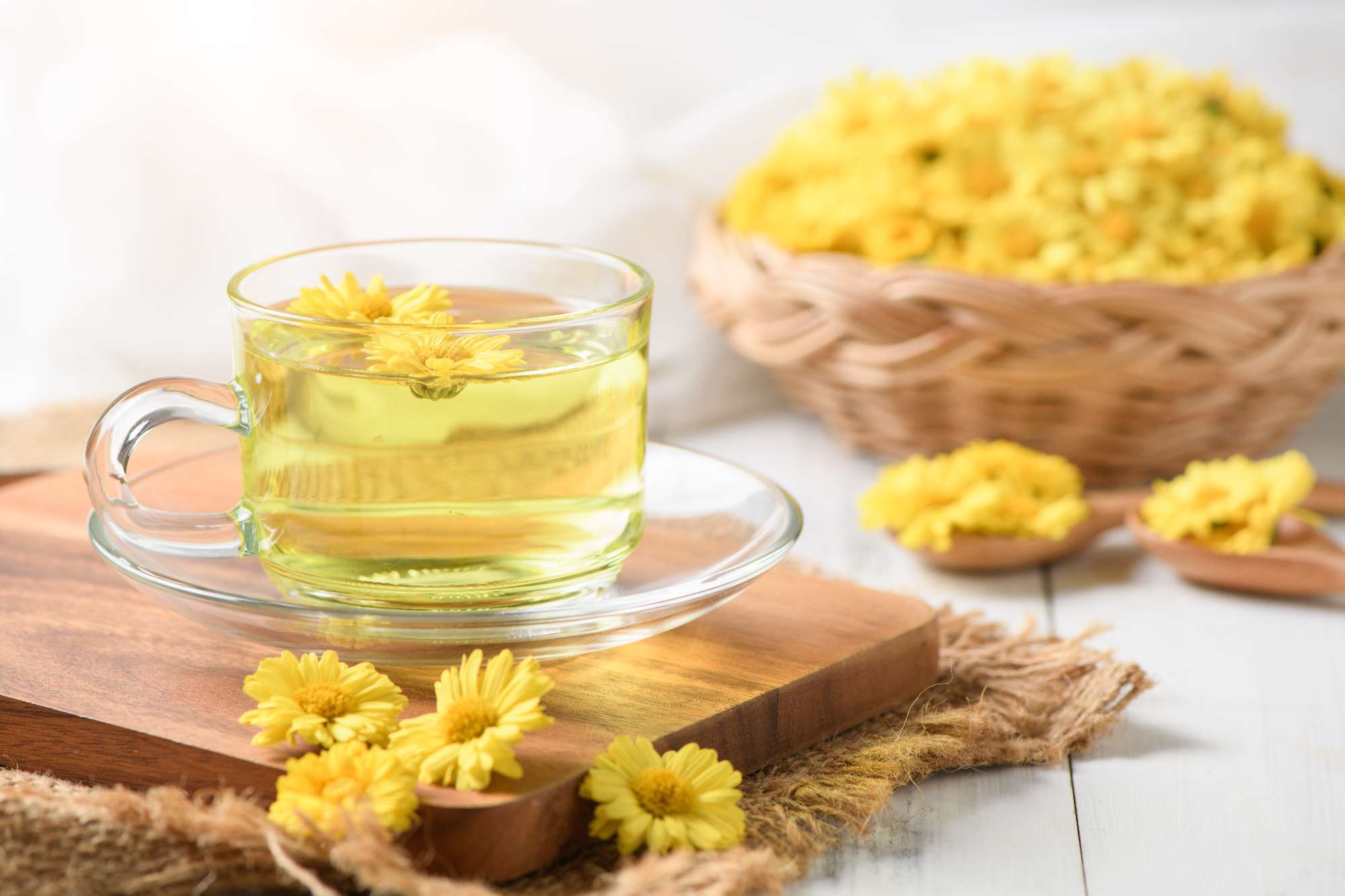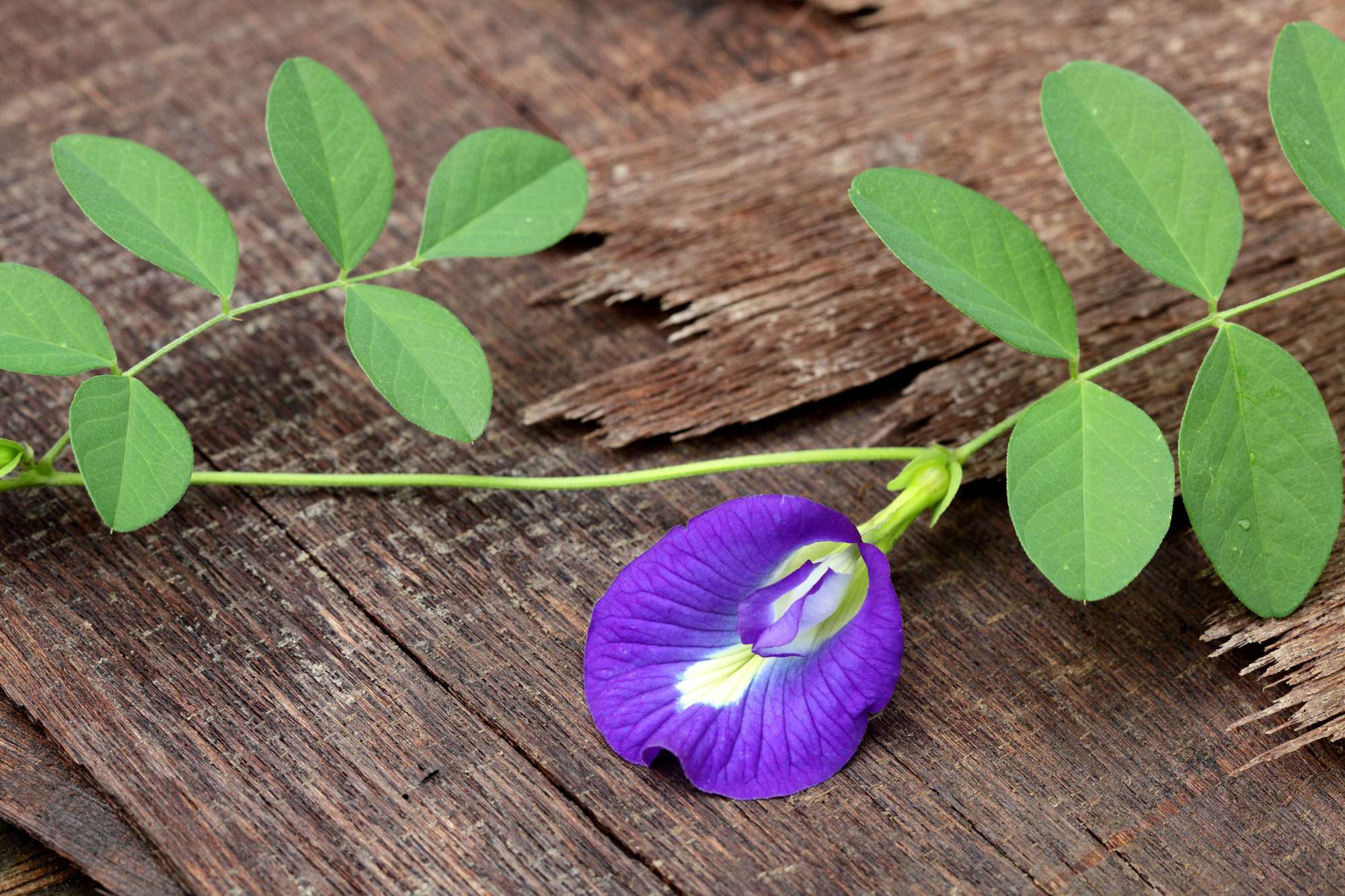Chrysanthemum flower with many valuable health benefits
Chrysanthemum flower with many valuable health benefits
Chrysanthemums are considered a good source of nutrients, vitamins and minerals. Chrysanthemums may increase blood flow to the heart, help improve cardiovascular functions, and may also increase insulin sensitivity.
Chrysanthemum is a flower that has been depicted for centuries, not only in the decorative arts, but also in cuisine and medicine. Now over 3,000 varieties have been found. Chrysanthemum is derived from Ancient Greek: χρυσός chrysos meaning gold and ἄνθεμον anthemon meaning flower.
Chrysanthemums are herbaceous flowering plants in the genus Chrysanthemum in the family Asteraceae, native to East Asia and Northeastern Europe. It is also known as mums or chrysanths. Flowers come in different colors such as white, yellow or red, purple. Cultivated or hybrid chrysanthemums typically have large flower heads, while the flower heads of wild chrysanthemums are much smaller.
The taxonomy of this genus Chrysanthemums is controversial and has undergone several revisions. Species formerly in this genus Chrysanthemums include corn marigold (Glebionis segetum); costmary (Tanacetum balsamita); feverfew (T. parthenium); tansy (T. vulgare); Marguerite, or Paris daisy (Argyranthemum frutescens); and Shasta daisy (hybrid forms of Leucanthemum maximum).

Nutritional value
Chrysanthemums is considered a good source of nutrients, vitamins and minerals. Consuming 51 gram of Chrysanthemum offers 90 µg of Vitamin B9, 0.481 mg of Manganese, 17 mg of Iron, 0.07 mg of Copper, 0.09 mg of Vitamin B6, 48 µg of Vitamin A, 289 mg of Potassium and 60 mg of Calcium.
Health benefits
Chrysanthemum may increase blood flow to the heart, so it may help improving cardiovascular functioning and also increase insulin sensitivity.
.jpg)


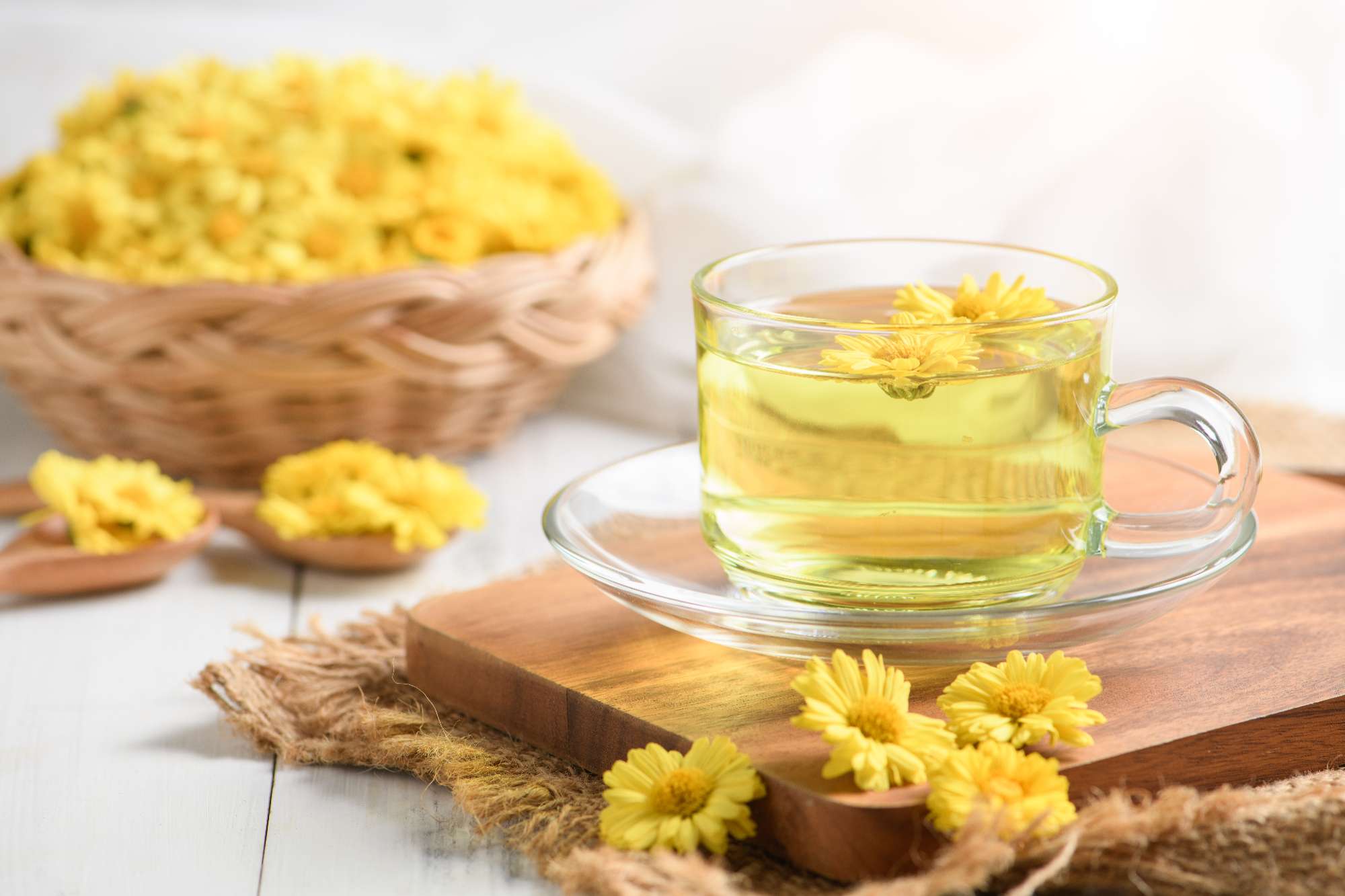
1. Blood PressureHypertension (abnormal blood pressure level) can also be treated with the herbal tonics which include chrysanthemum. In Asia, chrysanthemum tea is used for treating the symptoms related with the changes in blood pressure; these include dizziness, tinnitus and headaches. Other than this, several cardiac problems can also be treated by chrysanthemum, like angina.
Research also supports that chrysanthemum is beneficial for treating cardiac and blood pressure problems. However, if you are taking other medications along with chrysanthemum, consult your doctor before taking chrysanthemum tea. Also for more serious conditions, it is suitable not to take these drugs without the consultation with your doctor.
2. Blood CleansingAccording to the City University of New York, chrysanthemum can also be used to remove toxins from the blood. Regular consumption of tea helps in the purifying blood. For getting rid of insomnia, you can take a cup of chrysanthemum tea. Chrysanthemum flowers, cinnamon, ginseng, and honey suckle are mixed together and they provide body with warmth and creates a kind of balance in the body. However, it is best to consult with the doctor before taking it for cleaning blood.
3. Improving Cardiovascular FunctioningThe Memorial Sloan-Kettering Cancer Center claims that, due to chrysanthemum tea, the passage of blood in the coronary arteries is improved. Certain health problems like dizziness, insomnia and headaches are cured by the use of chrysanthemum tea. Because of antibiotics present in it, chrysanthemum tea is quite beneficial against chest pain.
4. Lowers CholesterolPeople who are suffering from cholesterol issues must start consuming this tea daily. It naturally brings down the levels of low density cholesterol in the body and increase the high density cholesterol in the body. It is very extremely useful for obesity, heart and diabetes patients.
5. Alleviate Cold SymptomsFor treating hot colds, Chrysanthemum tea has been used in the Chinese culture for dealing with cold symptoms. It is beneficial against headaches and cold and has a direct effect on fever, because of its cooling properties. It is also found beneficial for dealing with cold and flu. Chrysanthemum flowers, honeysuckle flowers and peppermint are required for making chrysanthemum tea. Put these herbs in boiling water. Allow the pot to cool down and drink it every two hours for beneficial result.
6. Against Heat RashesChrysanthemum tea is also beneficial for heat rashes. According to Chinese doctors, chemical imbalances in the body are the main cause of heat rash. Chrysanthemum tea is one of the best cures for heat rash symptoms. Stay away from sugar and spicy foods since it may produce heat in the body.
7. Cures InflammationChrysanthemum tea acts as a coolant and helps in dealing minor rashes on the skin caused due to heat etc. You can apply the powdered form of this tea externally on the impacted area or drink it two to three times a day till symptoms disappear. It has amazing anti-inflammatory qualities that treat the swelling due to bee stings, broken muscles and allergic reactions too.
8. Eye HealthChrysanthemum tea is considered one of the best methods to cure various eye problems. For people with unstable vision, chrysanthemum tea improves the sharpness of vision. Chrysanthemum tea is quite beneficial for different eye problems, like blurriness of vision, watering of eyes, and spotty vision. Apart from that cataract disease can also be treated with the help of chrysanthemum. To get rid of tired eyes, drink chrysanthemum tea or apply it on your eyes, by sprinkling it into the eyes directly. However, before using chrysanthemum on eyes, it’s better to seek medical advice. The reason is that, sometimes, rare symptoms can be developed.
9. Providing the Body with Vitamin BChrysanthemum tea is a rich source of vitamin B like folacin and choline. Choline is quite beneficial for development and multiplying of the cells. It also helps in metabolism of fats within the body. For the normal functioning of gastrointestinal route, niacin is quite beneficial. So chrysanthemum tea helps the body in different ways as it contains vitamin B in it.

Allergies and side effects
Although there are countless benefits of Chrysanthemum, there are also some side effects of Chrysanthemum on health.
If you’re allergic to daisies or ragweed, you might also be allergic to chrysanthemum.
Direct contact with the flowers may cause skin irritation and asthma in some people. One study also linked drinking chrysanthemum tea to the development of anaphylaxis in a small number of cases.
It’s important to stop consuming chrysanthemum if you have a reaction like a skin rash or respiratory irritation.
Chrysanthemum may also interact with prescription medications. Research from 2015 indicated that chrysanthemum may interact with several statins (drugs that help lower cholesterol levels). The authors recommended avoiding drinking chrysanthemum tea while using these medications.
If you’re taking prescription medications, ask your doctor before you start using any chrysanthemum products.
If you are pregnant or nursing, ask your doctor before drinking chrysanthemum tea.
Chrysanthemum essential oil may also have antimicrobial and antiviral effects, according to researchTrusted Source. However, more studies are needed to ensure its safety, and it should be used carefully.
Some chrysanthemum varieties contain a substance called pyrethrum, which is used in many pesticides. Exposure to pyrethrum may irritate your skin and lungs.
Compiled and penned by Crocus Media
Products
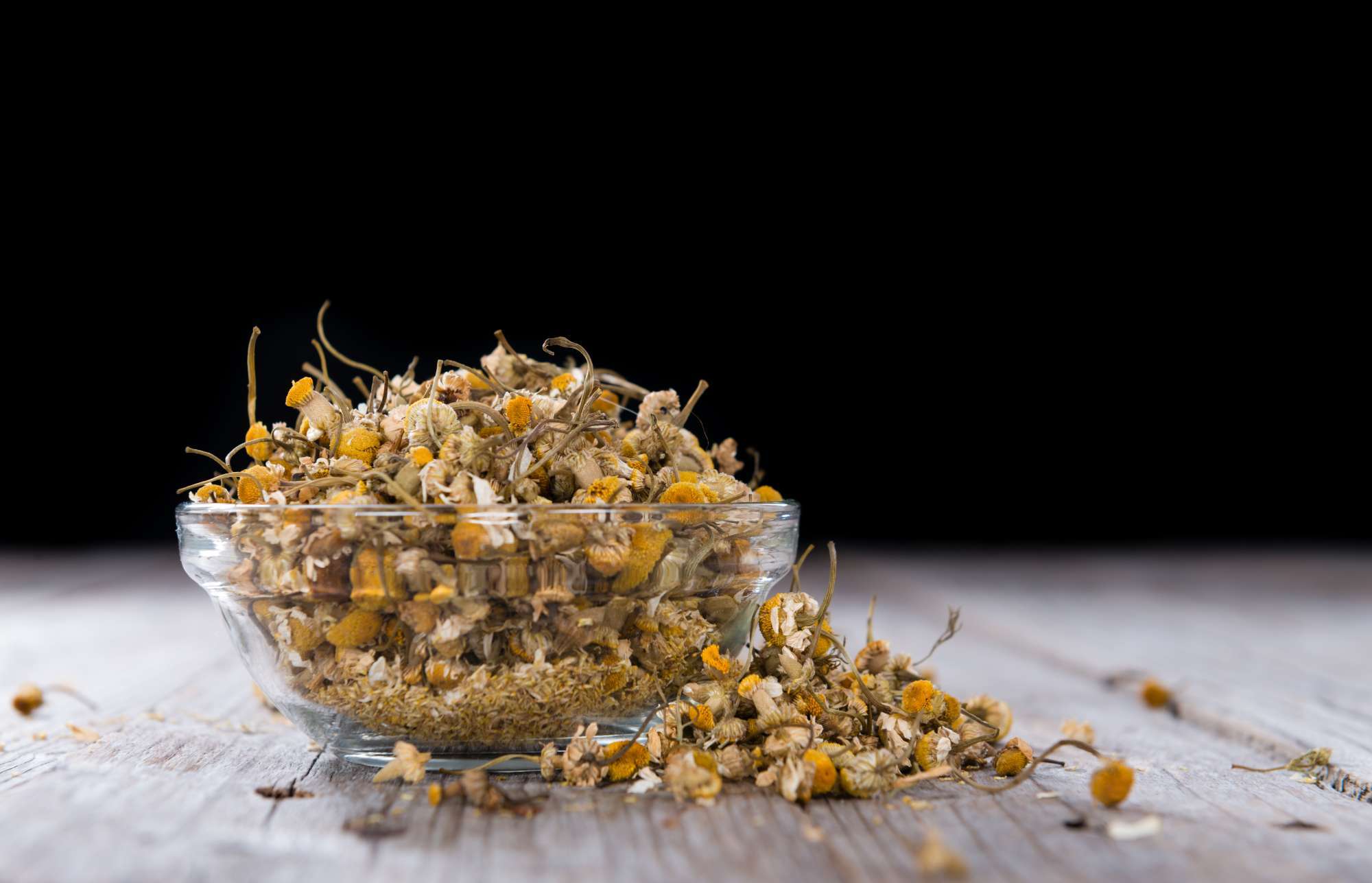
Chamomile tea
Chamomile tea has a mildly bitter taste and countless valuable health benefits such as Improves heart health, treats insomnia, controls blood sugar, reduces cancer risks, clears heat, detoxifies, lowers blood pressure,... Chamomile tea is made from 100% natural herbs, no preservatives, no flavorings, safe for health.
.jpg)
Rosa Centifolia tea
Dried Rose tea is selected from the budding rose buds. Natural aroma, easy to drink, has many health benefits such as supporting digestion, reducing stress, detoxifying, beautiful skin, helping to lose weight, slow aging,... Dried rose tea is made 100% from natural, no preservatives, no flavoring, safe for health.
